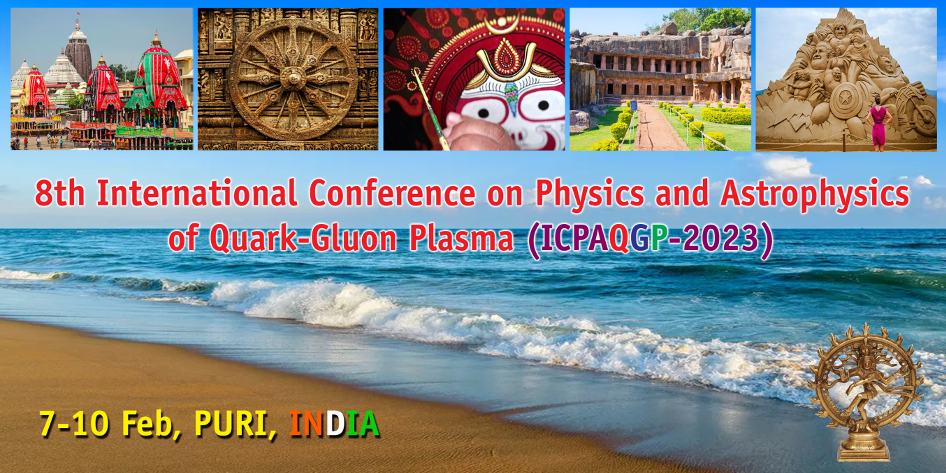Speaker
Description
There have been different proposals for signatures of the formation of a deconfined thermal medium(quark-gluon plasma) in heavy-ion collisions. The suppression of $J/\Psi$ in the deconfined medium is one of the cleanest signals among many other signatures like elliptic flow, jet quenching etc. for the formation of the deconfined medium. However, there are very few signals effective for the formation of QGP in small systems such as the systems produced in proton-proton, proton-deuteron and deuteron-deuteron collisions. Here the medium formed is shown to be very short-lived compared to that formed in heavy ion collision as the system undergoes 3-dimensional spherical expansion from the very beginning of the hydrodynamic phase. We model the dynamics of the small systems for different sizes of the formed systems after the Gubser flow model and we infer that the hydrodynamic expansion phase timescale is smaller by a factor of at least 2. We then calculate the dissociation probability of $J/\Psi$ through the non-adiabatic evolution of the state using the time-dependent perturbation theory for different values of thermalization time. We find rather small dissociation probability of $J/\Psi$ in small systems in contrast to that in the systems produced in Au-Au/Pb-Pb collisions, thereby establishing that quarkonia($J/\Psi$) suppression may not be a very useful signature for the formation of the thermal medium for proton-proton/proton-deuteron or deuteron-deuteron collisions.

